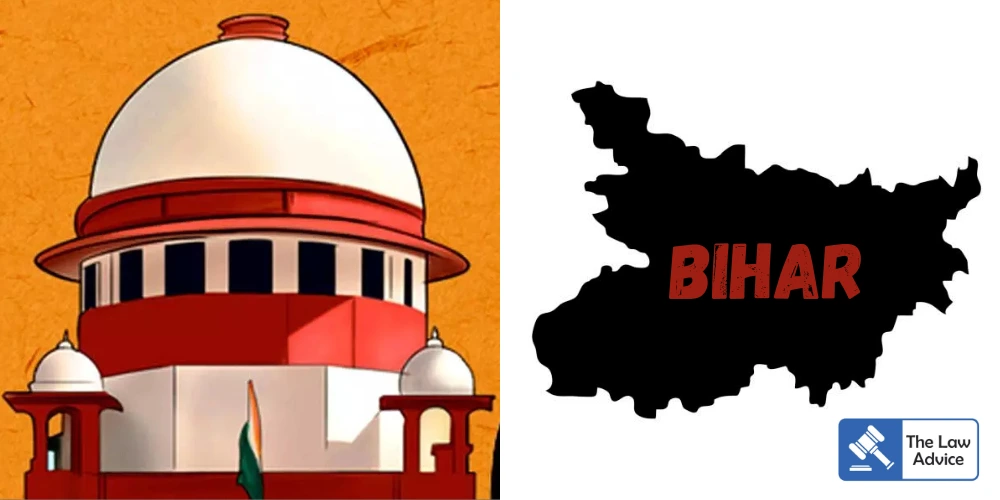
The Supreme Court of India has agreed to scrutinize the constitutional validity of Section 58 of the Bihar Prohibition and Excise Act, 2016, which empowers the District Collector to confiscate property in cases linked to liquor prohibition offences. The development came in a petition filed by the State of Bihar, assailing a ruling of the Patna High Court that had quashed the confiscation and subsequent auction of a vehicle belonging to one Shankar Baranwal.
A bench led by Chief Justice of India BR Gavai, along with Justices K Vinod Chandran and NV Anjaria, issued notice in the matter and observed that it would examine Section 58 of the Act in light of Rules 12A and 12B of the Bihar Prohibition and Excise Rules, 2021.
The controversy arose from the seizure of a Tata Safari owned by the respondent, after six bottles (180 ml each) of liquor were allegedly recovered from the vehicle in 2020, in violation of Bihar’s prohibition law. A confiscation proceeding was initiated, culminating in 2021 with an order against the respondent. His appeals before both the Appellate Authority and in Revision failed.
Consequently, in 2022, the vehicle was put up for auction. Notably, the SUV—originally purchased in 2013 for around ₹14 lakh—was valued by the Additional District Transport Officer (ADTO) at ₹3.2 lakh in 2021 but ultimately sold off for just ₹1.85 lakh.
Hearing the challenge, the Patna High Court found serious irregularities in the valuation and auctioning process. The Court criticised the “wholesale valuation” method adopted by Motor Vehicle Inspectors in Bihar, observing that vehicles were being valued arbitrarily without any individualized assessment based on purchase price, year of manufacture, depreciation policy, or insurance benchmarks.
The Court came down heavily on the practice, remarking that state bureaucrats cannot conduct valuations by mere “naked eye assessment”. Such a practice, it noted, not only resulted in loss to the owner but also inflicted losses on the state exchequer.
Accordingly, the High Court held the respondent entitled to compensation. It ordered payment of ₹3.2 lakh (the initial valuation) minus ₹20,000 as penalty. Additionally, the ADTO was directed to personally pay ₹1.35 lakh to the respondent for the irregular valuation, while the State of Bihar was asked to pay another ₹1.65 lakh.
The State of Bihar challenged this decision before the Supreme Court, contending that the High Court had exceeded its jurisdiction. While issuing notice, the apex court stayed the High Court’s directions requiring payment by the valuer but made it clear that the larger question—whether Section 58 of the Bihar Prohibition and Excise Act, 2016, is constitutionally valid—needs to be determined.
The bench observed:
“Issue notice, since we are inclined to consider the question with regard to validity of Section 58 of the Bihar Prohibition and Excise Act, 2016 read with Rules 12A and 12B of the Bihar Prohibition and Excise Rules, 2021.”
The outcome of this case is likely to have far-reaching consequences for Bihar’s prohibition regime, which has often been criticized for its strict enforcement provisions and alleged misuse of confiscation powers. If Section 58 is struck down or read down, it could significantly alter how vehicles and properties seized under the Excise Act are dealt with in Bihar.
Case Title: The State of Bihar & Ors. v. Shankar Baranwal
Case Number: SLP (C) No. 20640/2025
Website designed, developed and maintained by webexy